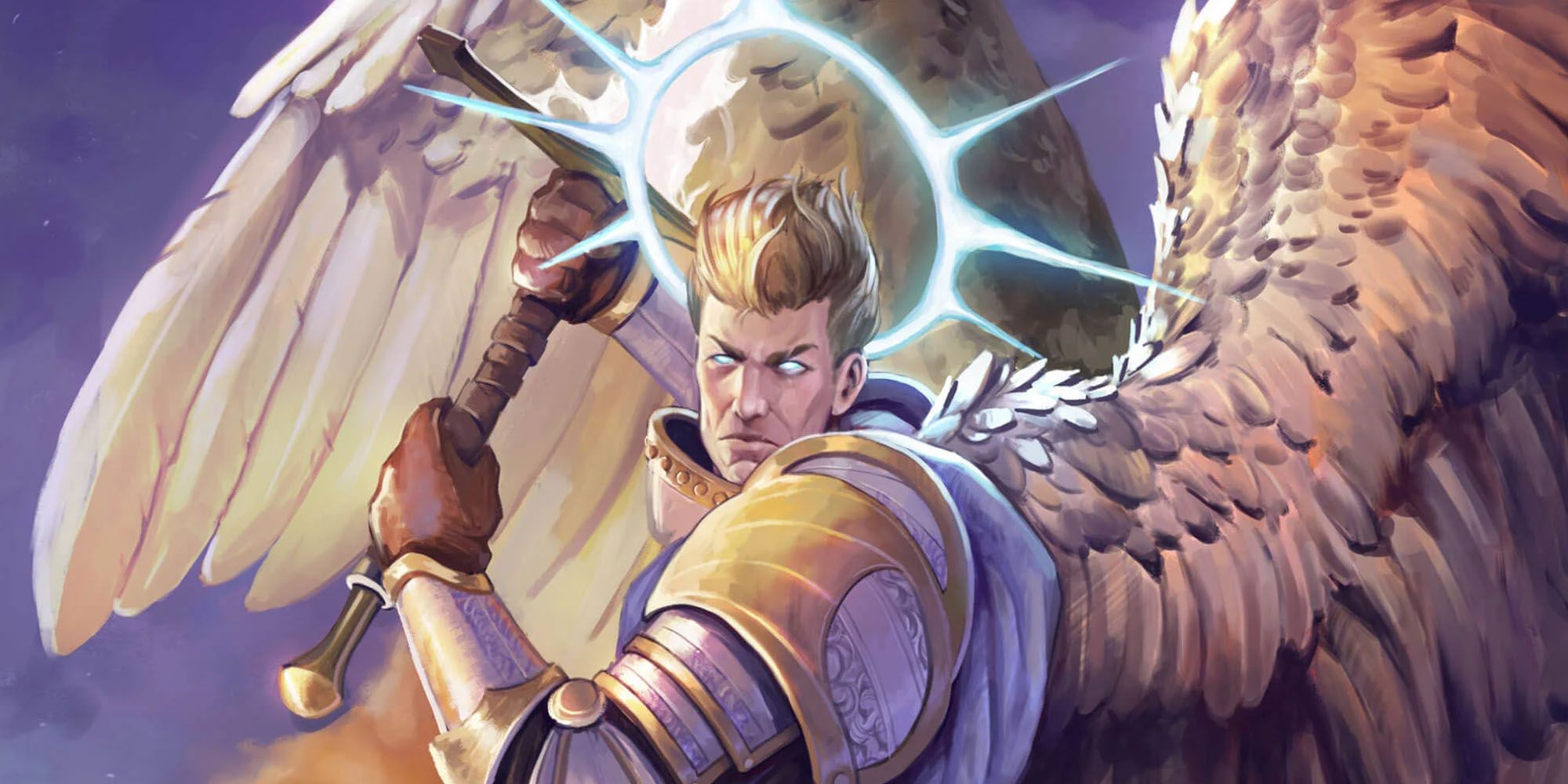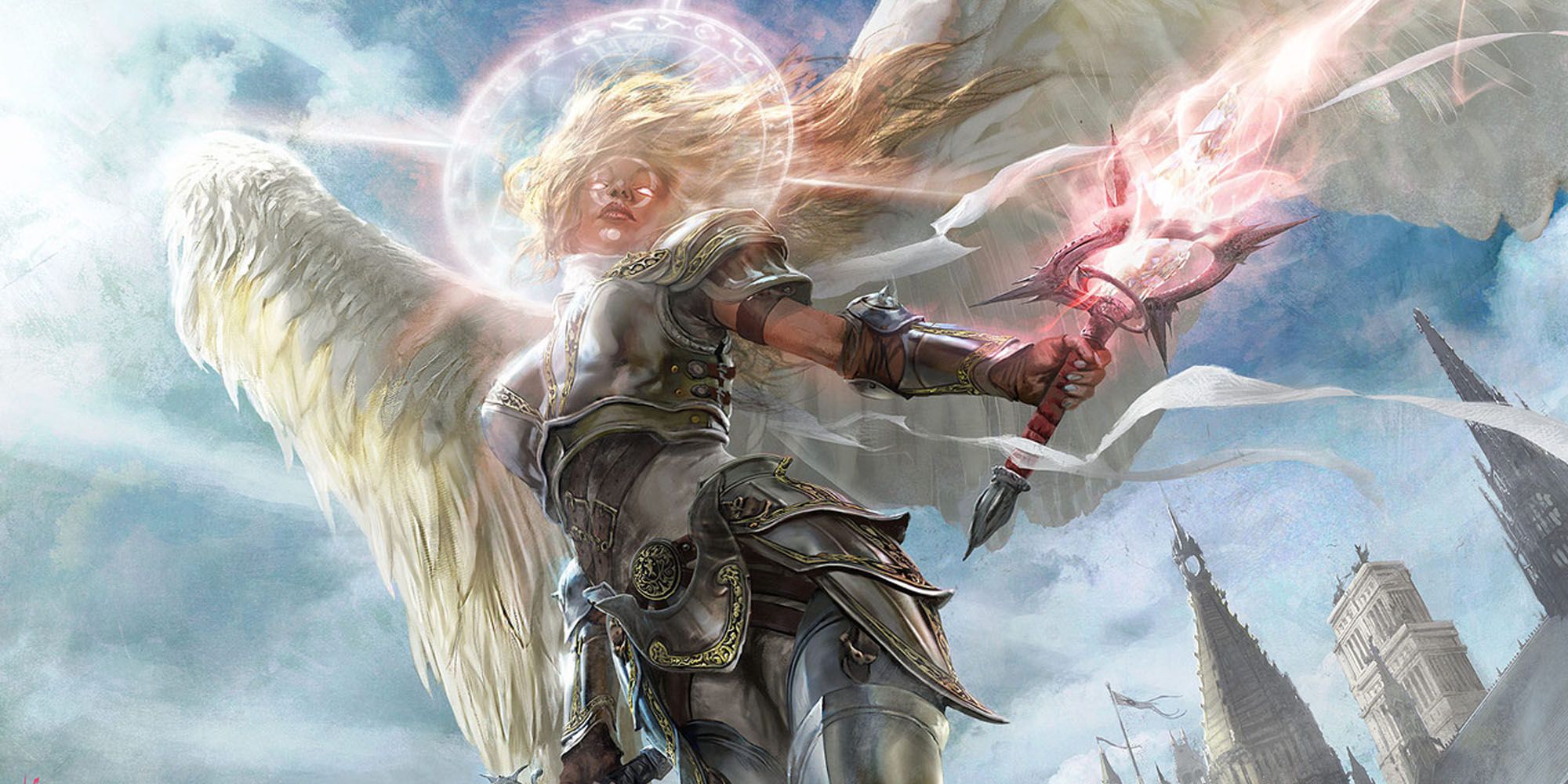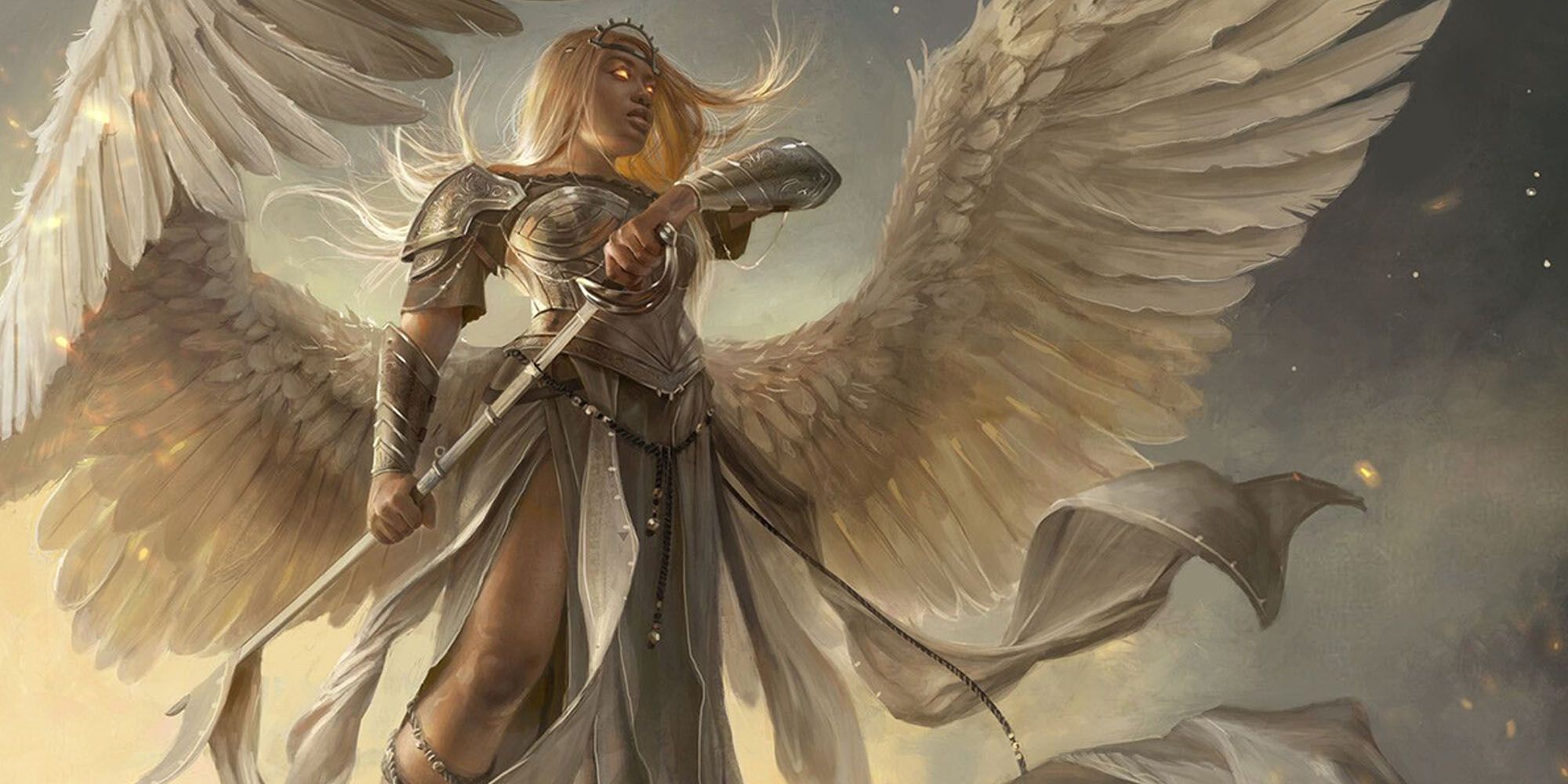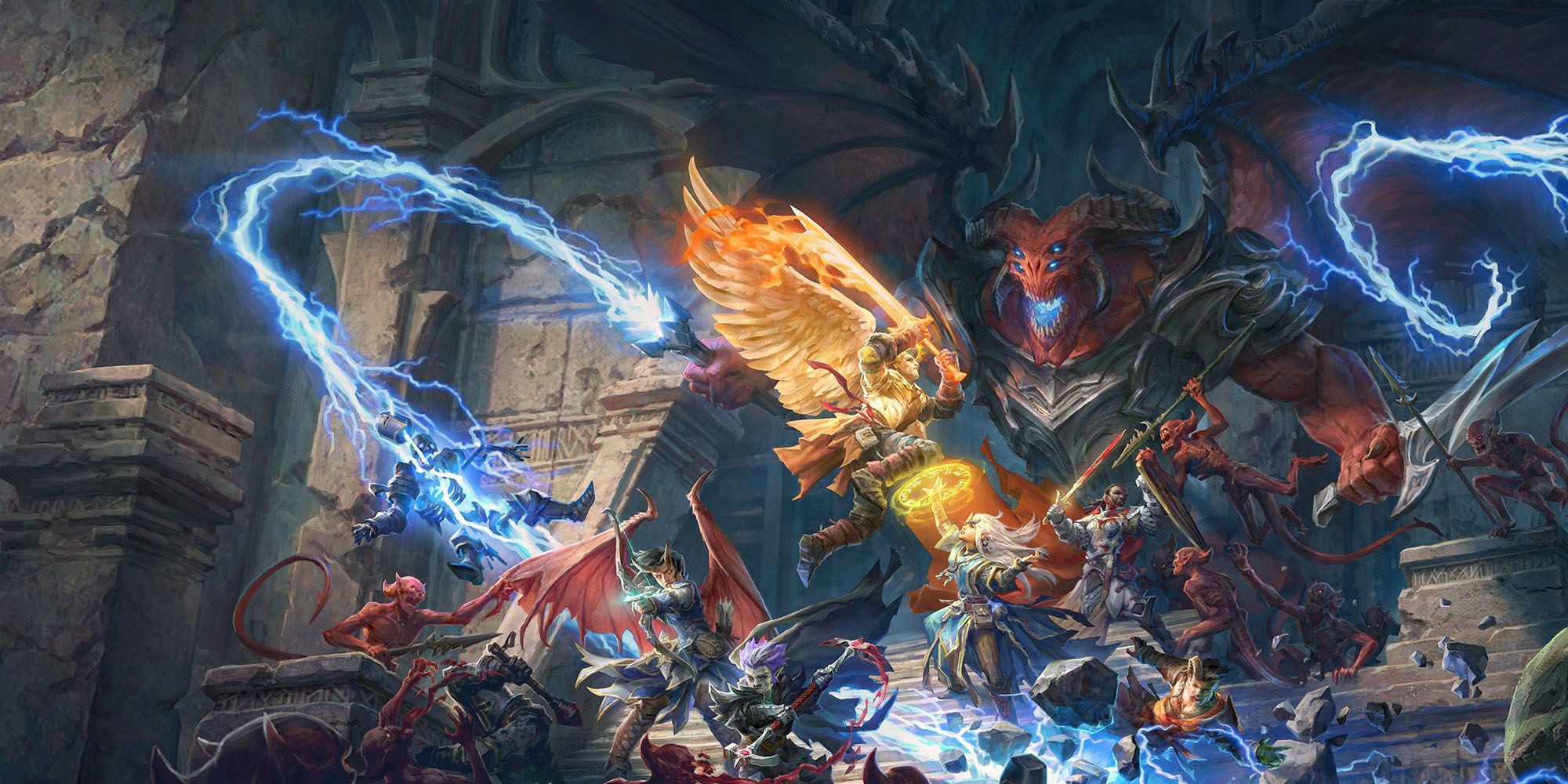
As demons pour from the Worldwound in Pathfinder: Wrath of the Righteous, one special crusader is granted the power to lead others on an epic crusade to either stop malevolence from overrunning all or become an evil so terrible even demons balk in its wake. Perhaps the most righteous Mythic Path in the game, the Angel leads the crusade by example, sweeping across the battlefield on glorious wings, demons cower in the face of their flaming, holy sword.
The Angel Mythic Path has the potential to become either a powerful martial presence on the field or a terrifying caster flinging offensive and defensive spells -- but they don't have to become just one or the other. Angels can blend their martial prowess with mighty Cleric and Oracle spells to dominate the battlefield.

Angels have their own special place in high fantasy adventure RPG settings like Dungeons & Dragons and Pathfinder. Pathfinder mythology defines Angels as celestial beings who inhabit the upper planes of existence, united in their protection of all that is good and righteous and doing everything in their power to drive back forces of evil.
One of the first creations of the primordial gods of good, Angels come in three forms: Planetars, Solars and Astral Devas. They were originally created to stand as guardians and servants of the celestial realms, but most Angels in the modern realms are born from mortal souls of unwavering goodness. Alignment-wise, Angels fall on the good end of the scale, but that doesn't mean they're all lawful good. They may be neutral or chaotic in nature. Plus, there are some who serve Trickster gods that will even deceive others to promote and achieve the greater good.

There are 10 Mythic Paths in Wrath of the Righteous, and the Angel path is the very first one offered. It is also the easiest to unlock. After the city is attacked in the Prologue, explore the underground cavern. Meet Lann and Wendaug, who are searching for the Angel's sword. Help them explore the room until coming across a pile of rubble. Clear the rubble and discover the Angel's sword.
After picking up the sword, the players will receive a vision of the Angel's death. Lann believes this is a powerful piece of evidence that needs to be shown to their leader back at the camp. However, Wendaug begs the player not to show the leader the sword. To unlock the Angel Mythic Path, show the sword to the leader. This will cause Wendaug to leave the party, but you'll earn incredible powers in exchange.

Because the game's antagonist is a massive demon army, becoming an Angel seems fitting. Who else will be more motivated to drive back the darkness with the smiting light of their holy sword? Though Angels can fall anywhere on the good alignment scale, Wrath of the Righteous' Angel is more or less the embodiment of Lawful Good, determined to set the world back on a righteous path.
These powerful beings have access to a wide variety of Cleric and Oracle spells that protect and defend allies, making these ideal starter classes. Additionally, they can even resurrect dead party members who fall in battle. There are several options to choose from at Mythic Rank One, but Close to Heaven is the best option for an Angel. This path grants the player the ability to choose an enemy or ally within 50 feet and deal a powerful ray of heavenly light that either heals or damages.
Their Rank 3 abilities and spells are already incredibly powerful, allowing them to add an extra 2d6 holy damage to attacks made with their Sword of Heaven -- and they only grow more radiant as they advance in rank. They can also cast powerful spells specific to their path, like Grant Repose, Shield from Demonkind and Ward from Disease. An Angel's abilities grow and their access to spells becomes even more astounding with each Mythic Rank.

The Angel's Mythic Spell list is definitely enticing, with one of its most powerful spells named after the game itself. The "Wrath of the Righteous" spell forces all demons in a 40 foot radius to make a Will saving throw. Upon failing, they take 10 damage per caster level, which means the damage really stacks up. Even if they make a successful Will save, they still take 1d6 per caster level damage, which is nothing to sneeze at.
The "Solar Chains" spell summons radiant golden chains made of pure sunlight to hold an enemy paralyzed and immobile for a number of rounds equal to the caster's level. Each round, they are dealt 4d6+1 damage per caster level. They must make a saving throw to avoid being captured -- and even on a successful save they are staggered for the round. At the end of each round, they can make another saving throw to attempt to break free.
The Angel's abilities allow them to summon two spiritual Paladins for one minute to attack and defend against enemies. As they advance, their summons do as well, leading to creatures like Movanic and Astral Devas and powerful Spirit Guardians that rise to the occasion and lend their aid in battle. Angelic Halo provides a bonus buff to allies within 50 feet of the Angel, and this bonus can be increased at Mythic Ranks five, seven and nine.
Halo's Holy Aura, gained at Mythic Rank seven, protects allies with divine radiance. Warded from attacks and granted resistance to spells cast by evil creatures, those protected gain +4 deflection bonus to their AC and +4 bonus on resistance saves. They gain 20+ the Angel's Mythic Rank to their spell resistance against evil spells and are protected against spells that create mind-altering effects. To make this boon even more epic, when evil creatures attempt to strike those protected, they are blinded by holy light.
0 Comments